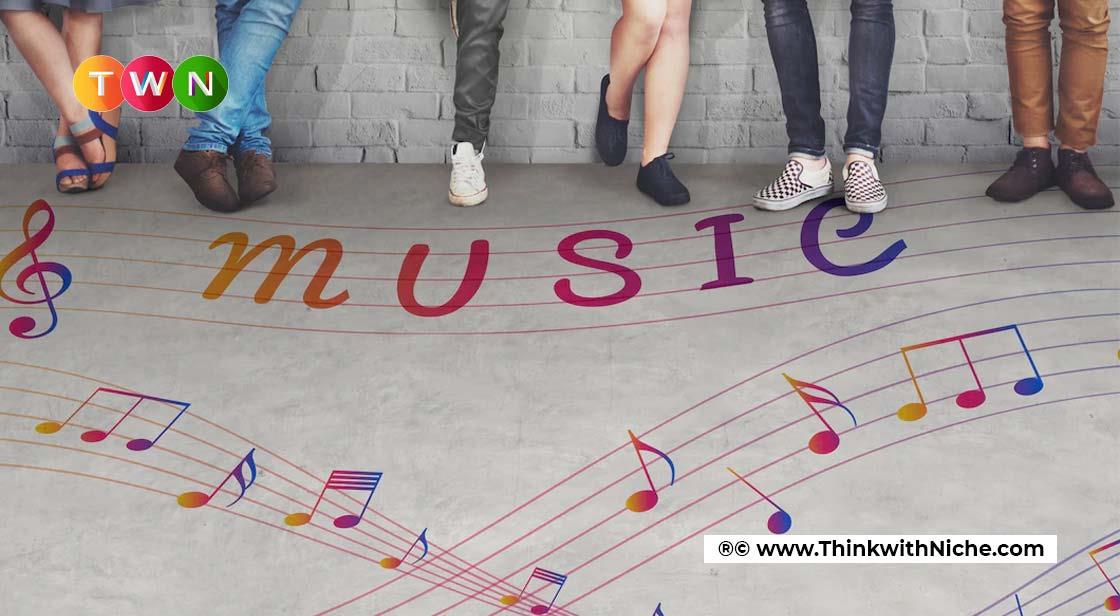Music Therapy A Route to Mental Well being

Blog Post
Therapy is the best way to confront one's feelings and help them deal with a bunch of issues including depression and anxiety. There are countless types of therapy but the strangest, and a comparatively new way of therapy, that found a lot of buzzes around during the pandemic is Music Therapy. Mental health is an important aspect of one's life and it is important for everyone to look after their mental well-being. One of the best ways to deal with mental illness is music therapy. Music therapy is a newly developed way of treating various mental health issues such as depression, anxiety, stress, autism, etc. Anyone who is diagnosed with a mental illness is eligible to take this treatment. Learn about it briefly.#ThinkWithNiche
Over the years, mental health has become a mainstream subject. People are openly talking about it which has led to more people getting professional help for their mental well-being. The fast-paced nature of modern life has led to an increase in stress and anxiety amongst people; while the big and secluded nature of apartments in the city has made people feel more lonely than ever. The socializing aspect of one's life back in the day has been taken over by the fast, and yet meaningless, connections on social media. This has played a huge part in the surge in the number of patients dealing with mental illness. The cases of mental illness doubled during the pandemic when people were left alone in their homes, secluded and hopeless. This caused a surge in anxiety among many young, as well as middle-aged people. Thankfully, increased public knowledge about mental health and therapy has aided many in seeking professional help sooner than they would have otherwise.
Therapy is the best way to confront one's feelings and help them deal with a bunch of issues including depression and anxiety. There are countless types of therapy but the strangest, and a comparatively new way of therapy, that found a lot of buzzes around during the pandemic is Music Therapy. Music therapy is a newly developed way of treating various mental health issues such as depression, anxiety, stress, autism, etc. Anyone who is diagnosed with a mental illness is eligible to take this treatment. This treatment can help people cope with low blood pressure, and memory loss, and help people reduce stress. But since music therapy is comparatively new and is an evident-based treatment, there's still a lot of uncertainty and unawareness around it. Let's learn more about it and go a bit deep into the subject.
What is Music Therapy and How Does it Help
The clinical aspect of music has long been under research by psychologists. The study of music in treating a bunch of mental health issues is fascinating. Music Therapy is built on the concept that music has a deep psychological effect on people and can help people in many domains of human functioning; cognitive, academic, behavioral, psychological, etc. Music therapy is used to treat mental illness by addressing a patient's mood. In this, patients are required to listen, sing or play a certain musical instrument to help them cope with their mental illness.
Music therapy works in a bunch of ways to help patients cope with their surroundings. It has a number of significant effects on a person undergoing therapy, including improved communication and memory. Music helps in the recall of events and memories that may have been forgotten or buried deep inside one's conscience. It also makes people happier and gives them moments of peace. Patients benefit from music therapy in a variety of ways.
Who is Applicable to Take Music Therapy
Music therapists mostly work with people who are victims of trauma and crisis. Anyone who has ever experienced a traumatic event may develop anxiety. Music therapy addresses all these issues. Apart from this, people who are on the Autism Spectrum can also take the help of music therapy to learn things that they may normally find difficult to understand.
Apart from these groups, music therapists also work with people who are diagnosed with Alzheimer's and can help them remember things better because of familiarity. People who suffer from substance abuse can also take the help of music therapy to help them heal and deal with their addiction.
Conclusion
If you have anxiety, stress, or another mental disease, music therapy is one of the simplest and most effective ways to treat your problems and manage your illness. However, even music therapy has its limitations, and one should understand as much as possible about it before enrolling.












